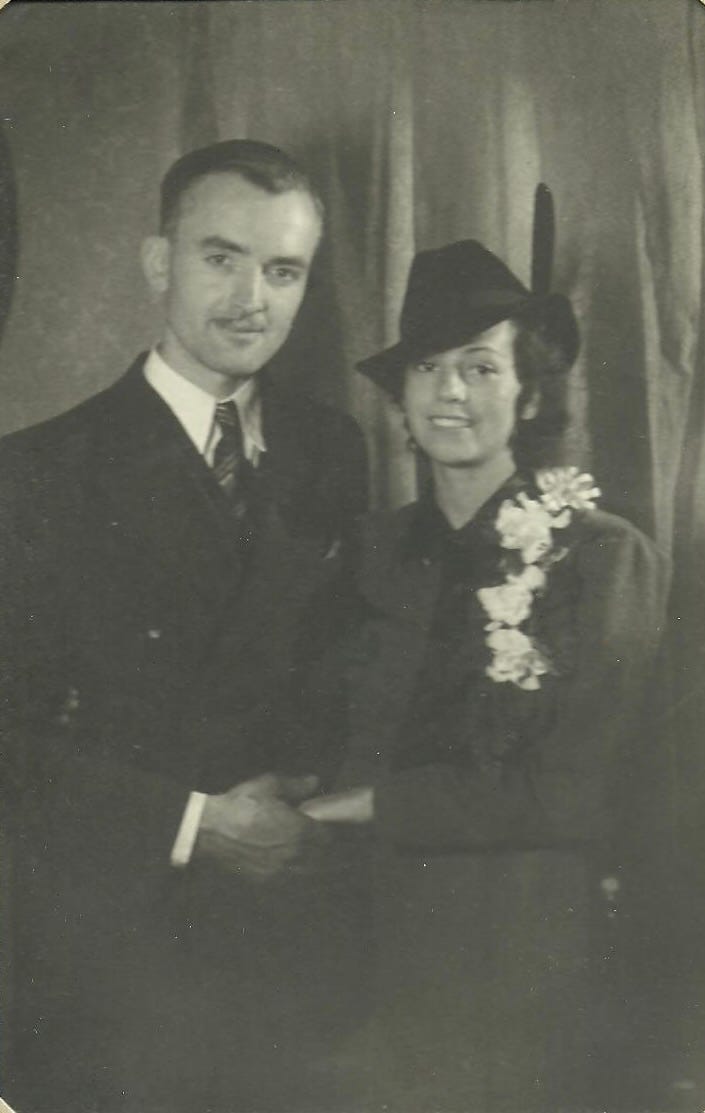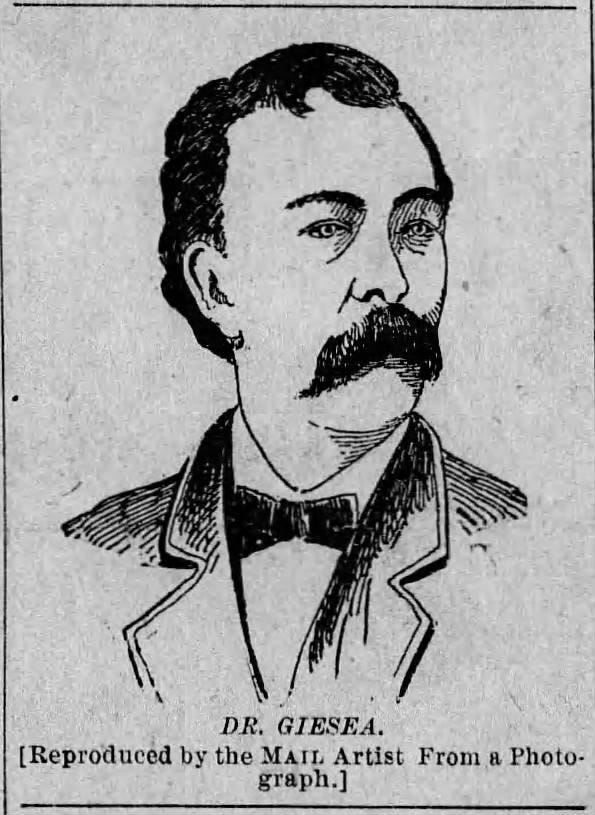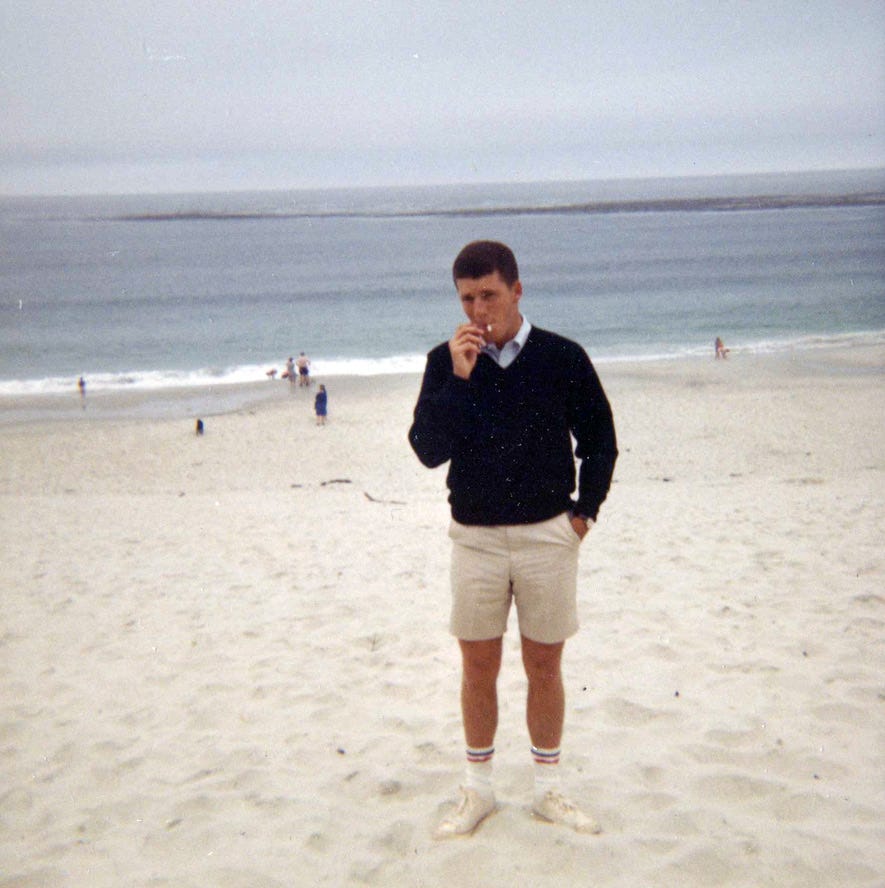Middle Son of California
Immigration, identity, and spectacle in the Golden State — a personal reflection
As I watch events in LA, I feel a pull in my bones reminding me that I’m a son of California. But these days I feel like the middle son, caught between Gavin Newsom and Stephen Miller. Conflicted as hell. I’m literally between their ages and views, and metaphorically focused on keeping the family from tearing itself apart. One minute I’m raging at the farce of U.S. immigration policy and brick-throwing protesters waving Mexican flags. The next, I’m cringing at Trump’s police-state theatrics and the cruel targeting of innocents.
We’re walking into a trap, and the media spectacle is part of it. In a hyperreal world, we have to remember that this isn’t reality TV. It’s actual reality. People will get hurt if we treat it like a show. And yet the fuse is already lit. California dreamin’ has become California screaming, and my mediating, middle-son sensibilities are on high alert. Though I haven’t lived there in decades, California still lives in me — this drive to solve problems and dig for gold in the dirt. And maybe those instincts offer a way out. But to get there, I need to share some personal history….
A hundred years ago, a little Mexican girl named Concepción — my grandmother — crossed the dusty desert border into California. This was before 1929, when crossing wasn’t a crime. Her family settled in East L.A., where she did domestic work for a Hollywood Hills family with Mayflower roots. Their son flirted with her. She flirted back. Scandal ensued. They married and had four kids, including my mom, who now lives in Mexico as a dual citizen — full circle. Concepción became Connie, but to me she was always “Grammy.”
Around the same time, in San Francisco, my great-grandfather — a Scottish-trained surgeon — presided over the Bohemian Club as president.1 I have old photos of him with well-dressed tycoons and gay-looking artists leaning on redwoods at the Bohemian Grove.2 My family still has a cabin nearby, and I swim in the same river he did.
Meanwhile, another great-grandfather ran a theater in San Francisco. He was born in Stockton, the son of a Berlin-born doctor. They all shared the initials F.A.G., a long-running joke in my family. My grandfather, F.A.G. III, grew up skateboarding the hills of Cow Hollow.
To my ancestors, California was a land of golden opportunity. In 1925, it was still a semi-frontier with only 3.9 million people. It was conservative then, even nativist. Now it’s ten times more populous and deep blue.
In the postwar boom, California became a middle-class Xanadu. Ancestries like mine merged into its own culture, mythologized by shows like The Brady Bunch. In photos from the ‘60s, my dad looks like he’d wandered off the set of Gidget.
I was born in Marin County in the mid-1970s, when you could still buy a home there for several huckleberries. Now they’re over $2 million, and affordability issues have pushed many people out.
We left the state when I was eight, but I returned for college and visited the Russian River every summer. I remember the fight over Prop 187, a voter initiative to restrict public services to undocumented immigrants.3 It passed, then got struck down by a liberal judge who said enforcement was a federal responsibility. Ironically, this is the same argument Trump is now making.
In the decades since, I’ve watched California charge into the future in ways both inspiring and maddening. There’s traffic, crime, homelessness, inequality. Yet it’s also home to Silicon Valley, Hollywood, elite universities, and one of the most dynamic populations on earth. The Anglo-Castizo middle-class culture of my childhood has become a stratified multicultural society — and it still mostly works.
But the California Jerry Brown helped shape is showing cracks. The uneasy alliance of countercultural, neoliberal, and pro-government sensibilities that defined “Californian ideology” is buckling. You see it in San Francisco’s squalor4, LA’s wildfires, and the state’s sketchy finances. Don’t even mention high-speed rail.
Now a new generation is grappling with those contradictions. And out of this swirl of forces step two sons of California, squaring off over immigration.
Stephen Miller, the testy younger son with villain vibes, stands for sovereignty and rule of law. And he’s willing to round up laborers at Home Depot to make the point.
Gavin Newsom, the slick elder son who flouted his pandemic policies in the most gauche caviar way imaginable at the French Laundry, is now defying Trump’s ICE-and-Marines escalation in LA, calling it unconstitutional and reckless.
To Miller, Newsom enables lawlessness.
To Newsom, Miller enables authoritarianism.
Then there’s me: the middle son, arms outstretched, trying to stop the fight, yelling: This is not reality TV! I share Miller’s fury at decades of unenforced law. And I share Newsom’s urge to protect the innocent.
If I were to offer a mediated path, my motto would be sovereignty without cruelty.
We need a smarter plan to achieve immigration sovereignty — one that deports criminals and takes national security risks seriously, but that stops short of mass expulsions of law-abiding laborers. Blunt-force deportations will backfire, and I question their morality. Instead, we should shift incentives, better enforce employment laws, and, yes, create guest worker programs and earned paths to citizenship for those who genuinely contribute, as many do.5
To the libs and libertarians: You can’t be pro-democracy and ignore borders.6 And to the Trump crowd: You can’t enforce democracy through brutality and mass surveillance, or it will begin to smell like fascism.
We have to thread the needle. The path of the middle son is to call for deescalation, sanity, and smart solutions. If you’re a protester, that means staying peaceful, waving the AMERICAN flag, and offering actual solutions. If you’re a Trump supporter, it means targeting bad actors instead of innocents, and not buying into Stephen Miller’s broad-brush rhetoric of scapegoating and demonization.
I’m more of an immigration hawk by nature, and polls suggest that the public sides with Trump on these issues. But it’s clear to me that Trump is overplaying his hand and losing moral authority, and that will backfire.
My background — part privilege, part immigrant — pulls me in opposing directions. I want to offer a middle path. But I also realize I may have to pick a side at some point. That’s life in an era of dumbed-down culture war politics.
California, like me, is full of contradiction. The state has always teetered between collapse and Eureka, June Gloom and blue sky, tectonic shifts and stable earth. It’s always been a place of dreams and disillusions, where second sons chart the future.
Related Note
I wrote this essay as a response to an essay prompt I suggested.
Related Essays
Theme Song
A great-great-grandfather, technically.
Not to defend Richard Nixon’s description of the Grove or anything, but…
I sometimes wonder how things might look if Prop 187 had survived.
Well, except when Xi is in town.
Immigration hawks will point out, correctly, that this creates moral hazard. However, I don’t see a path to immigration sovereignty without some compromise. To me, the tradeoff is worth it and net good for the country.
Unless the populace votes for that.










Great article!
Jeff calls for deporting the criminals. I assume by this he does not mean people guilty of the misdemeanor offense of unauthorized entry, (If such "criminals" deserve expulsion, then so does the felon in the White House).
I have no problem with expelling convicted criminals, if it poses no threat to the US (I would oppose deporting a Mexican drug cartel leader serving time in US prison as this would just enable his return to crime). This was standard policy before Trump was first in office. I support creating a path to citizenship for illegals who have lived a long time here--assuming new entrants are prevented from entering illegally.
There was actually the compromise that was being worked out a couple of decades ago. The issue was the immigration hawks wanted assurance that we would control the borders before they would agree to some form of citizenship conversion. Did not happen. And the experience under Biden showed Democrats could not be trusted on the issue. I'm a liberal Democrat and I was appalled when it dug up the stats in border crossing for a discussion right here on Substack.
But I see now the border problem has been solved. Almost no border crossings.
https://substackcdn.com/image/fetch/f_auto,q_auto:good,fl_progressive:steep/https%3A%2F%2Fsubstack-post-media.s3.amazonaws.com%2Fpublic%2Fimages%2F7e01d161-601b-46bd-86e1-530de0a2963a_756x344.png
I don't know what Trump did, but he has solved the immigration problem. If he was a normal politician, he would be making the rounds touting his solution to a crisis that seemed insurmountable a year and a half ago, I mean just look t that graph. A year ago, we were being told that we needed to pass an expensive bill to deal with the influx of migrants across the southern border.
But that is not what Trump is doing. Rather he is performing extraordinary rendition (ER) of "criminals" inside the US, just as we started doing decades ago with terrorists outside of the US. What's next, drone assassinations? Obama ended ER and ramped up drone strikes begun under Bush.
Why stir the pot with these ER actions? What is the objective here?
It’s become a real problem when Americans feel they have to change their views just to be able to participate in Democracy. Or to pretend they’re somebody they’re not just to be included in the debate.
As you thoughtfully describe, the reality of our lives and the world around us is often filled with nuance. Should our views on reality not reflect those nuances?
As it is true in life, so too is it true in policy. There is no such thing as all-benefit and no-cost legislation. There are no policies with only intended outcomes and no unintended consequences. There are always trade-offs, in life as in policy decisions.
To govern may be to choose, but the choice need not always be between one extreme or the other. Balance *is* a choice in its own right.
It is an affirmative position to be advocated for, one to be sought for its own merits. It is not a mushy space of indecision and confusion. It is a purposeful goal and selection in its own right. An often wise and sensible conclusion to reach.
A state of balance has the virtue of reflecting both points of view, giving each side a stake in the outcome. Drawing on the wisdom and perspectives of each side and leaving out what does not fit. This is not crazy. It’s how policymaking used to work.
Our politics will never change so long as people who take such a view as yours feel like it is not their place to say so. It will never get better if people feel that balance is not something they can advocate for and also be heard.
Stay nuanced, Jeff. It suits you. And it suits our system of government too.